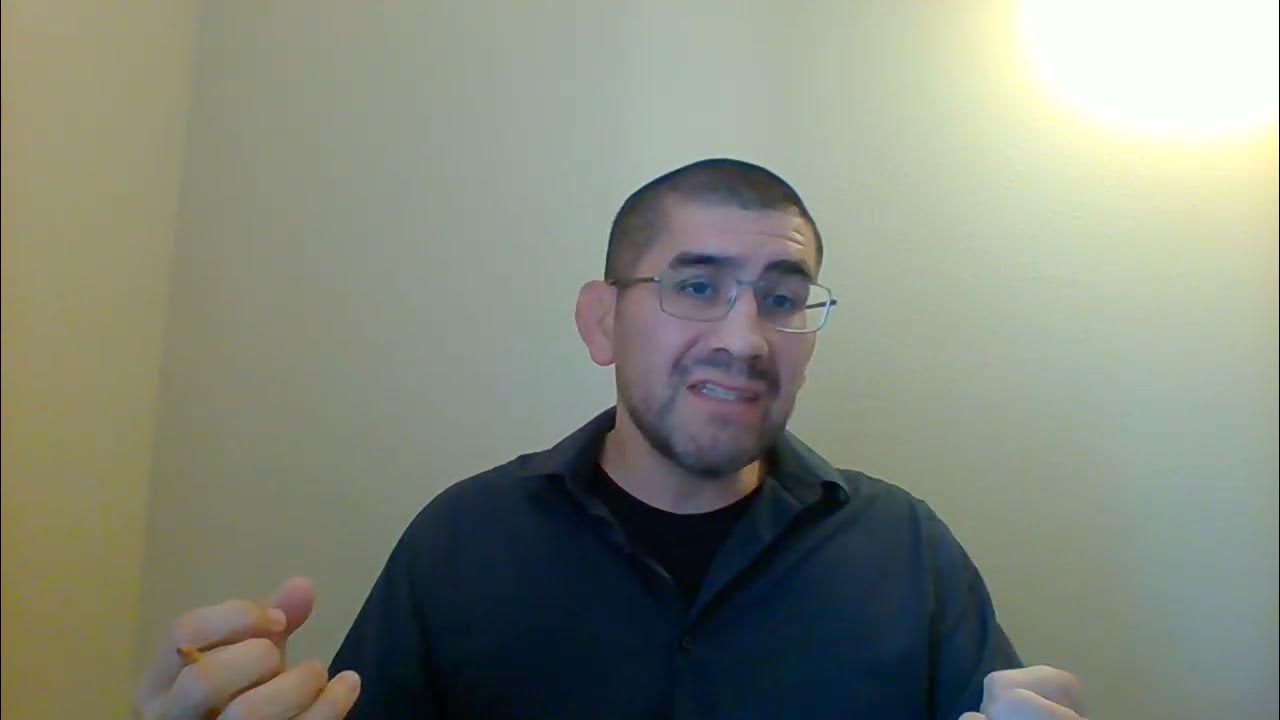Euthyphro In 3 Minutes
Summary
TLDRIn the dialogue, Socrates and Euthyphro discuss the nature of holiness and piety. Both accused of corrupting youth, they debate Euthyphro's prosecution of his father for murder and the true meaning of piety. Euthyphro suggests it is pleasing the gods, but Socrates challenges this, seeking a universal definition. They explore the relationship between gods and men, concluding that holiness involves honoring the gods. However, they fail to define holiness, leaving Socrates to face his charges without Euthyphro's guidance.
Takeaways
- 📚 Socrates and Euthyphro are both accused of corrupting youth by challenging traditional beliefs.
- 🤔 Socrates believes his case is more serious because he shares his beliefs with others.
- 🏛️ Euthyphro is prosecuting his father for murder in a religious court.
- 🔍 Euthyphro's family disapproves of his actions, considering it impious to accuse his father.
- 🙏 Euthyphro argues that piety is prosecuting criminals, even family, and cites Zeus as an example.
- 🤨 Socrates challenges Euthyphro's example, asking for a universal definition of holiness.
- 🌟 Euthyphro defines holiness as 'what is agreeable to the gods', but Socrates points out gods can disagree.
- 🔄 Euthyphro revises his definition to 'what all the gods approve of' as holy.
- 🔑 Socrates questions whether something is holy because the gods approve it or if they approve it because it is holy.
- 🔄 Euthyphro further refines his definition, suggesting holiness is a form of justice related to the gods.
- 🤝 Socrates compares the relationship between gods and men to that of master and slave, questioning the nature of this service.
- 💡 Euthyphro suggests that the purpose of religious service is to please the gods and receive good fortune.
- 💸 Socrates concludes that sacrifice is giving to the gods and prayer is asking from them, questioning what the gods gain.
- 🏃 Euthyphro withdraws from the discussion, leaving Socrates without a clear definition of holiness for his defense.
Q & A
What is the context in which Euthyphro and Socrates meet?
-Euthyphro and Socrates meet at a religious court, where both are presenting cases. Socrates is defending himself against charges of corrupting the youth, while Euthyphro is prosecuting his father for murder.
Why does Socrates believe his situation is more serious than Euthyphro's?
-Socrates believes his situation is more serious because he shares his beliefs with others, influencing the youth, whereas Euthyphro believes his plea will be successful because of his personal confidence in the righteousness of his case.
What crime is Euthyphro's father accused of, and why is this significant?
-Euthyphro's father is accused of murder for abandoning a worker who had killed a slave. The worker died of exposure and hunger while Euthyphro's father deliberated on what to do. This case is significant because Euthyphro's family believes it is impious to accuse his father.
How does Euthyphro justify prosecuting his father?
-Euthyphro justifies prosecuting his father by claiming that prosecuting a criminal is pious, regardless of their relationship. He cites the example of Zeus, who imprisoned his own father, as a precedent for this type of justice.
What definition of holiness does Euthyphro initially offer to Socrates?
-Euthyphro initially defines holiness as 'what is agreeable to the gods.'
Why does Socrates reject Euthyphro’s first definition of holiness?
-Socrates rejects Euthyphro’s first definition because the gods often disagree among themselves, so what is agreeable to one god might not be agreeable to another, making the definition inconsistent.
How does Euthyphro amend his definition of holiness, and does Socrates accept it?
-Euthyphro amends his definition to 'what all the gods approve of is holy, and what all the gods disapprove of is unholy.' However, Socrates does not accept it because he questions whether something is holy because the gods approve it, or if the gods approve it because it is holy.
What problem does Socrates identify with Euthyphro’s attempt to define holiness as a form of justice?
-Socrates points out that if holiness is the branch of justice concerned with the gods, it suggests that humans can benefit or improve the gods, which Socrates finds implausible.
How does Euthyphro describe the relationship between humans and gods when it comes to holiness?
-Euthyphro describes holiness as a service to the gods, where humans learn how to pray and sacrifice in ways that please the gods, bringing good fortune and avoiding their displeasure.
Why does Socrates believe Euthyphro has failed to provide a proper definition of holiness by the end of their conversation?
-Socrates concludes that Euthyphro has failed to provide a proper definition of holiness because they only circled around examples and practices (such as pleasing the gods through sacrifice) without addressing the essence of what holiness truly is.
Outlines

此内容仅限付费用户访问。 请升级后访问。
立即升级Mindmap

此内容仅限付费用户访问。 请升级后访问。
立即升级Keywords

此内容仅限付费用户访问。 请升级后访问。
立即升级Highlights

此内容仅限付费用户访问。 请升级后访问。
立即升级Transcripts

此内容仅限付费用户访问。 请升级后访问。
立即升级5.0 / 5 (0 votes)






